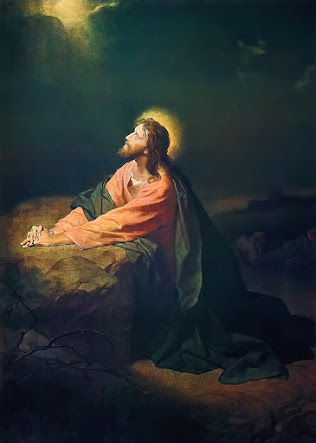On the first day of the week,
The first day of the week was Sunday, now not only the first day of the week, but of a new creation inaugurated by the resurrection of Jesus. It was for this reason that the followers of Jesus immediately beginning to celebrate Sunday as the Lord's Day, the celebration of the resurrection, which superseded the Sabbath. The Sabbath rest corresponded to the time Jesus was in the tomb. But the Lord's Day corresponds to the resurrection. It is for this reason that we say that every Sunday is a little Easter.
Mary of Magdala came to the tomb early in the morning,
while it was still dark,
and saw the stone removed from the tomb.
Although the world was still shrouded in the darkness of the horrific death of Jesus, Mary Magdalene's love could not be constrained to abandon her beloved. She still awaited the light that only the personal experience of the resurrected Jesus could bring to her. Only this experience could make sense of the otherwise unaccountable fact of the empty tomb. Her love, and therefore her grief at the death of Jesus, were deep. Only the restoration of the presence of the beloved could give life to the part of her heart that died when Jesus died. But again, we see some kind of hope within her, vague and undefined perhaps, but which nevertheless persisted in pursuit until her beloved was revealed to her in all of the splendor of his risen glory.
They both ran, but the other disciple ran faster than Peter
and arrived at the tomb first;
he bent down and saw the burial cloths there, but did not go in.
In our love we desire to run ahead to see what the empty tomb means for us and in our lives. Yet, we wait for Peter, the representative of the Church to make a definitive pronouncement. Yes, our excitement and eagerness are powerful motivations that help us to arrive, perhaps more quickly, at the meaning of the resurrection. But for just the same reason our eagerness often makes us abrupt or incautious in our reasoning. So we wait for the Church to confirm the meaning of our personal spiritual experiences.
When Simon Peter arrived after him,
he went into the tomb and saw the burial cloths there,
and the cloth that had covered his head,
not with the burial cloths but rolled up in a separate place.
Grave robbers wouldn't have bothered to leave the burial cloths, much less to roll than up and set them aside. It was also clear that, whatever happened, it was a different case from that of Lazarus who came forth from his own tomb still bound in his burial garments. This hints at what Paul explained in his letter to the Romans, that the case was Jesus was not merely a resuscitation, but something more.
We know that Christ, being raised from the dead, will never die again; death no longer has dominion over him (see Romans 6:9).
Peter and John saw the empty tomb and came to understand that it was God at work and not merely grave robbers. There was no merely human explanation for their discovery. And yet, their resurrection faith was not yet mature, could not be mature, until they encountered the risen Christ himself. Only this encounter could make sense of the Scripture about him, just as it also did for the disciples at Emmaus.
Once, however, the disciples did encounter the risen Lord, they evinced striking clarity about the meaning of all of the events that had previously been veiled in darkness. They were not merely detectives that had solved a mystery. They had become witnesses.
We are witnesses of all that he did
both in the country of the Jews and in Jerusalem.
They put him to death by hanging him on a tree.
This man God raised on the third day and granted that he be visible,
not to all the people, but to us,
the witnesses chosen by God in advance,
who ate and drank with him after he rose from the dead.





.jpg)








